Profile
Doris Deku: The professional tiler inspiring female artisans
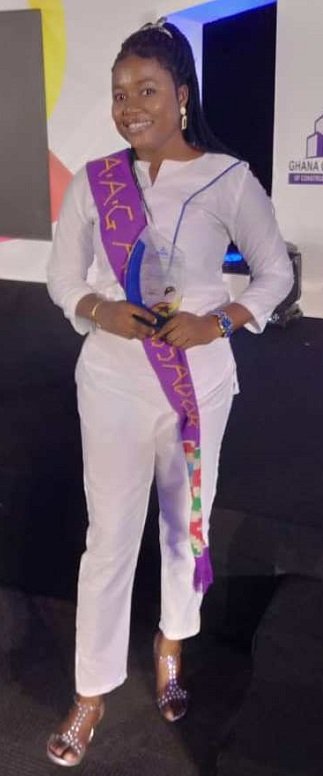
She grew up in Suhum in the Eastern Region but lost both parents at a tender age. Her father died when she was 15 and her mother also passed on three years later.
Due to financial constraints, her dream of becoming a Lawyer could not materialise as she was unable to further her education beyond Junior High School.
Determined to make ends meet nonetheless, she took up petty trading while living with an elder sister at Madina in Accra. Many years on, she has found her way in construction as a professional tiler and is helping other young ladies tap the opportunities in this sector.
This is the story of Ms. Doris Deku, Chief Executive Officer (CEO) of Ansadee Ventures and Ambassador for Artisans Association of Ghana (AAG).
When The Spectator caught up with her last Friday, she and her team had started a tiling project on a three-storey building in Accra.
Options
Explaining how she has become a highly sought-after tiler in Accra, the 29-year-old said that she used to sell cooked food at construction sites in her area after completing basic education.
“On one of my rounds at the site, I interacted with a worker on how I could be trained as a tiler. I had been observing them for sometime and I thought it would be an easy job for me,” she recalled.
According to her, some of the workers had told her that “tiling is not for ladies and not the same as preparing food for sale.” This ridiculous comment, she noted, were meant to “kill her passion’ but it rather sparked her interest further and did not damper her spirit.
As fate would have it, on one of her food selling rounds, she chanced on an opportunity offered by the Youth Inclusive Entrepreneurial Development Initiative for Employment (YIEDIE).
The five-year project, implemented by Global Communities in partnership with Mastercard Foundation, is designed to “create economic opportunities in the construction sector for economically disadvantaged youth.”
Doris decided to join the programme but initially opted for training in interior decoration. Upon realising that a lot of her compatriots had chosen this particular course, she switched to learn the rudiments of tiling instead.
“I told myself I would try tiling because I have never seen a female doing this job,” she said.
Doubt
According to her, some pessimists had doubted her success in the field during the first week of training but she was bent on finishing what she had started.
“When my trainer was away some workers would tell me to quit and find a better alternative but I kept telling them that even if I did not succeed, the knowledge I acquired would be enough achievement for me,” she said.
Contract
After completing the six-month intensive training in 2016, Doris sat the National Vocational Training Institute (NVTI) proficiency test and continued to understudy her “Master”, Mr. Nicholas Agbotse, for another one-and-a-half years.
“On a visit to a construction site, a fellow artisan spoke to me about a tiling job. The building project was behind schedule so they needed more hands to complete the tiling project. I did not have all the tools for the job so I decided to partner other colleagues in order to use their tools,” she said.
This was how the tenacious woman executed her first contract successfully and had since been getting recommendations for other projects. Subsequently, she joined a real estate development company that relied on her expertise anytime there was a project.
Company
With an initial grant from YIEDIE, she registered her company in 2017 and currently has 14 trainees, comprising 11 girls and three boys, and seven other permanent workers.
In September this year, the company was recognised by the Ghana Chamber of Construction Industry as the “Most Distinguished Inspiring Artisan of the Year” at the Ghana Construction Industry Excellence Awards.
Future
Although she is impressed that more young ladies now look up to her, the AAG Ambassador said she would do more for herself and other young girls in the industry.
“I want to train more ladies in tiling and form an all women artisan group to encourage other women to tap the opportunities in the construction industry,” she said.
Doris says she now has many of the equipment required for the job but plans to get other mechanical ones to speed up her work.
Advice
The CEO maintains that there are opportunities in the construction sector, apart from tiling and that young people, especially females, should strive to make a mark in the sector.
She says that the initial hurdles are inevitable but the benefit would certainly come when ‘we put our minds to it.”
“Tiling is all about beautification so I am always proud of myself when people are satisfied with my work after completion,” she has said.
The graduate of Umabun Hatab Islamic School at Madina Zongo has urged artisans to remain committed to their task and allow their professionalism to “speak for them.”
Doris, the youngest of five siblings, has said that her progress is not by her might but by the “will of God,” and remains grateful to Mr. Agbotse who trained her at the initial stages at no cost.
By Ernest Nutsugah
Profile
Edwina Anokye-Bempah Redefining Trust in Ghana’s Real Estate Landscape
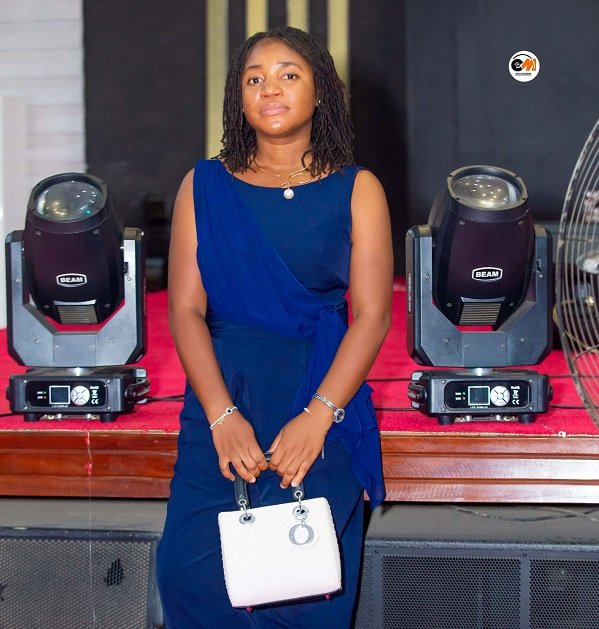
Every morning begins the same way for Edwina Anokye-Bempah, with quiet devotion. It is her grounding ritual, a moment of reflection and gratitude before she steps into the dynamic, often unpredictable world of real estate brokerage.
By the time she arrives at the office, she has already set the tone for her day. She reviews the previous day’s tasks, checks what was accomplished and what still needs attention, and then drafts a new to-do list. For her, success is rooted in deliberate planning, discipline, and the commitment to follow through.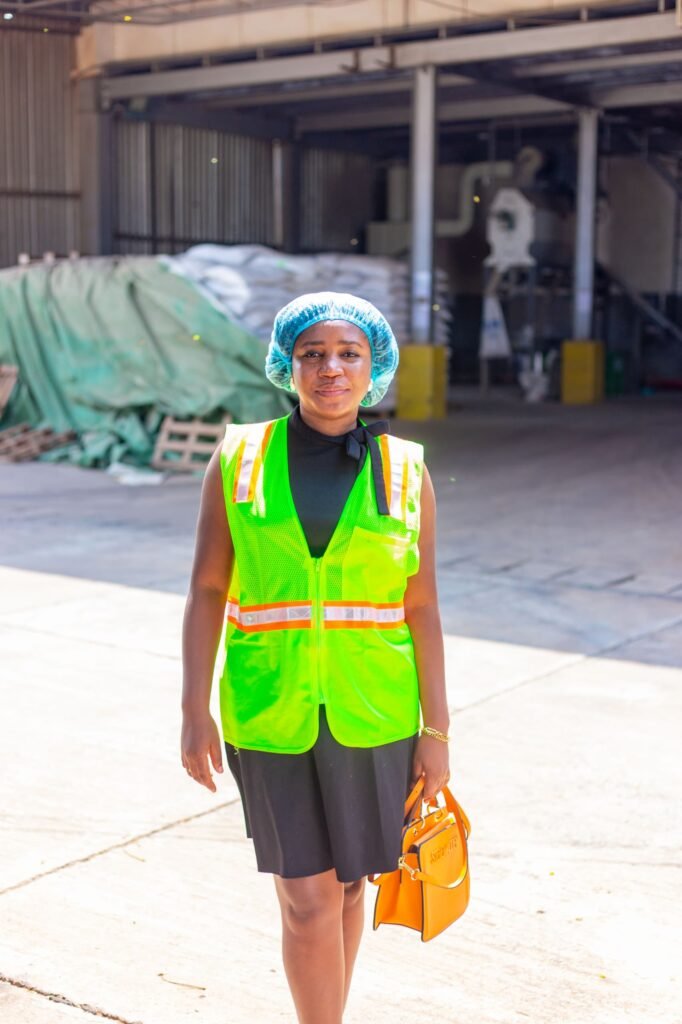
Today, Edwina stands out as one of Ghana’s promising real estate brokers, but she is also clear about the distinctions within her field. While many people casually use the term ‘realtor,’ she is quick to explain that only professionals registered with the National Association of Realtors can claim that title.
“Since I am not registered with the association, I am a real estate broker,” she says. It is a role she embraces wholeheartedly, facilitating transactions, connecting buyers and sellers, and ensuring clarity and integrity at every step.
Her journey into the industry took shape at MeQasa, an online platform dedicated solely to real estate. The platform exposed her to developers, agents, and the complexities of property transactions. She worked closely with developers and observed one recurring problem: clients often complained about agents who failed to respond, follow up, or provide accurate information.
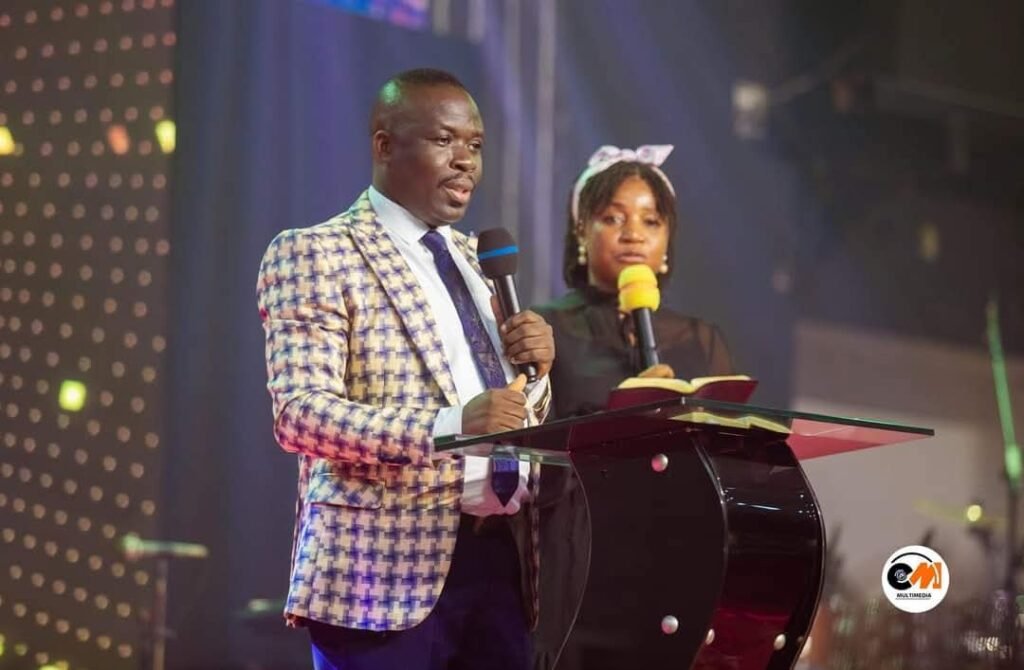
With her background in sales and marketing, Edwina felt naturally drawn to the field. It was an industry where she believed she could make a meaningful, positive impact. Real estate, she came to learn, is far more than brick and mortar. It is about helping people secure one of the most important investments of their lives. This understanding shapes every decision she makes.
One of the most challenging tasks in her work is qualifying clients.
“A serious buyer must be willing, ready and able,” she explains. When one of these three qualities is missing, the transaction is likely to stall or collapse entirely.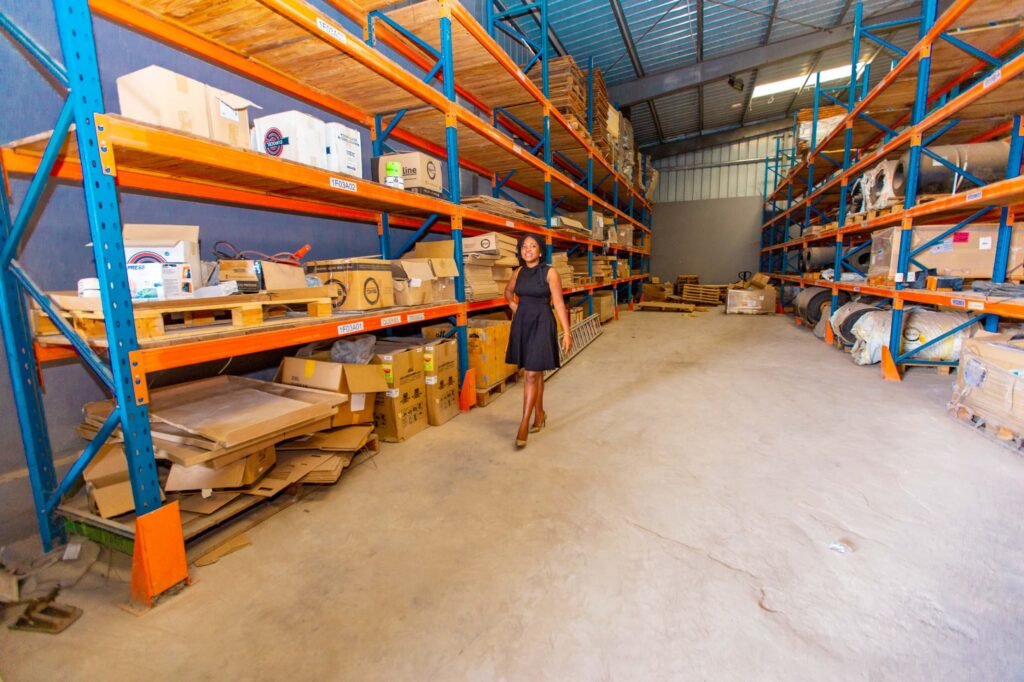
On the seller’s side, due diligence is equally critical. Ownership disputes, land fraud, and unclear documentation remain some of the biggest risks in Ghana’s real estate sector.
Edwina understands the weight of the responsibility she carries. “The money involved is huge. These are people’s lifetime savings. Most people buy one home or maybe two in their entire lives. You cannot afford to make a mistake.”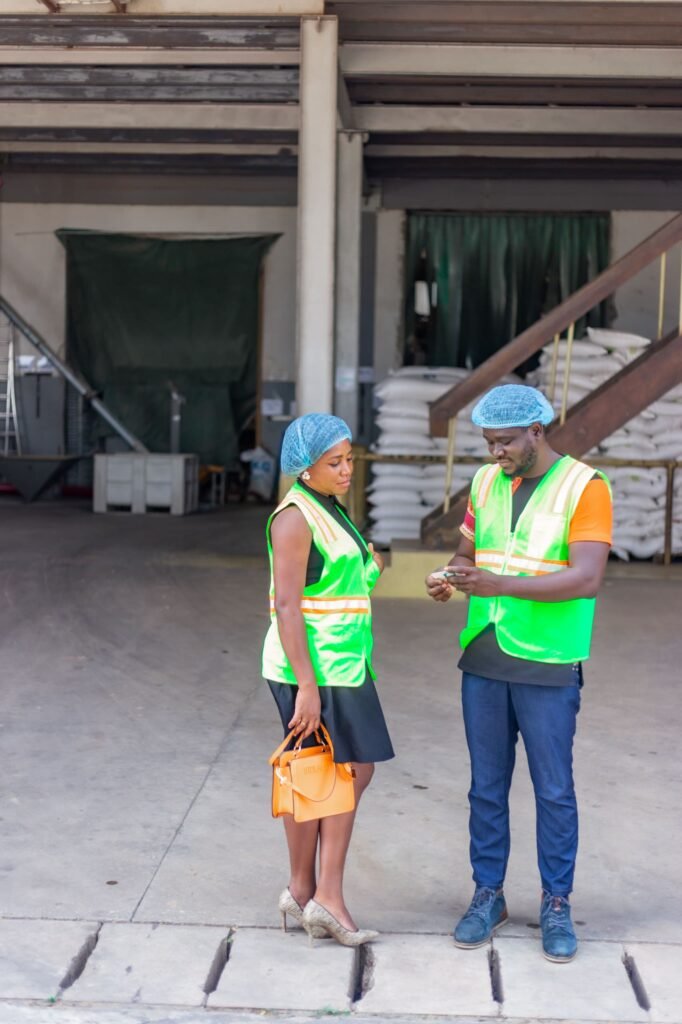
Working in what many describe as a male-dominated field has never intimidated her. With an MBA in Marketing and extensive experience in sales roles including a stint as an Account Manager in an advertising agency, she has grown comfortable handling clients, negotiating deals, and presenting herself with confidence.
“My gender has never discouraged me,” she says. “What matters is hard work and ensuring that the client’s needs were met.”
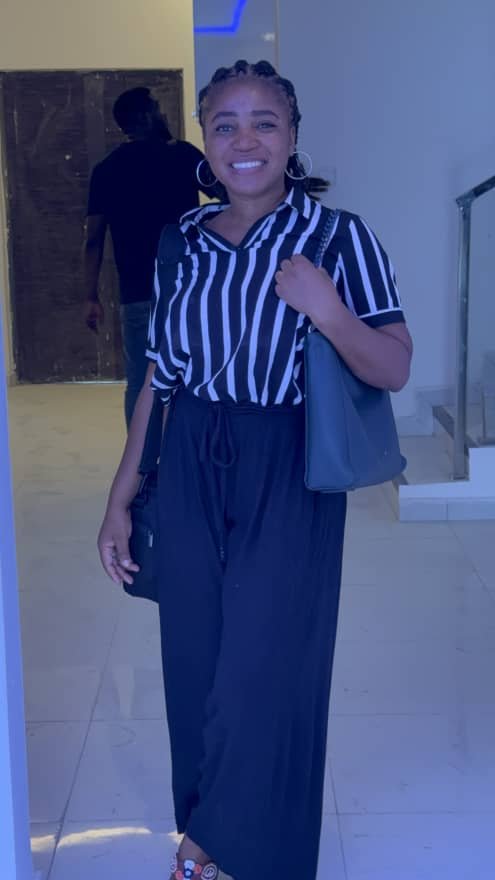
The only occasional challenge, she admits, was maintaining professional boundaries when some men attempt to be overly familiar. Her solution is simple: stay professional and do not over-familiarise yourself with clients.
Her educational journey started in Kumasi, followed by Yaa Asantewaa Girls’ Senior High School, where she studied Agricultural Science. She continued the same at the University of Ghana before pursuing her master’s degree. After university, she worked on her uncle’s poultry farm before moving into advertising. Later, her role at MeQasa finally opened the door to the career she had long been unknowingly preparing for.
Over the years, Edwina has built a reputation not only for competence but also for care. She recalls one client in particular, an older man relocating to Ghana with no family in the country. After helping him secure two homes, she became the closest person he could rely on. One evening at around 8 p.m., he called to say he felt unwell. Without hesitation, she drove to his home and rushed him to the hospital. Doctors later told her that any delay could have been fatal.
For Edwina, that moment affirmed that the job goes far beyond selling property. “It doesn’t end with the sale,” she says. “You have to look out for people.”
Her influence also extends to younger people observing her journey. She is known for her tenacity, her refusal to give up on clients or tasks, and her resilience in the face of challenges. Those who work around her learn to push forward regardless of setbacks.
“If a deal doesn’t go as expected, you don’t look back. You find a way.”
Beyond real estate, Edwina serves as an interpreter in her church, a role that dramatically boosted her confidence. What began with trembling legs has evolved into a boldness that reflects in her public speaking and client interactions. She credits her growth to God, her senior pastor, her mother, siblings, friends, and her dedicated team — “an amazing circle,” she calls them.
Today, she is also a partner in a showroom business dealing in vanity units, sanitary wares, and tiles, an extension of her real estate insight and experience.
For young people aspiring to join the industry, her advice is clear: “Learn the industry beyond selling. Understand transactions, build strong relationships, and always do your due diligence.”
For Edwina Anokye-Bempah, real estate is more than business; it is trust, service, and impact, one client at a time.
By Esinam Jemima Kuatsinu
Join our WhatsApp Channel now!
https://whatsapp.com/channel/0029VbBElzjInlqHhl1aTU27
Profile
How a Collapsed Dream Birthed Another: Daniel Debrah’s Music Journey

From the age of five, Daniel Nana Kwesi Kakra Debrah has lived a life surrounded by rhythm, harmony, and the quiet pulse of music. Growing up in a home where instruments filled corners and rehearsals were as normal as conversation, Daniel’s first teachers were not in formal classrooms—they were the sounds, movements, and discipline he absorbed from his father, a committed church musician.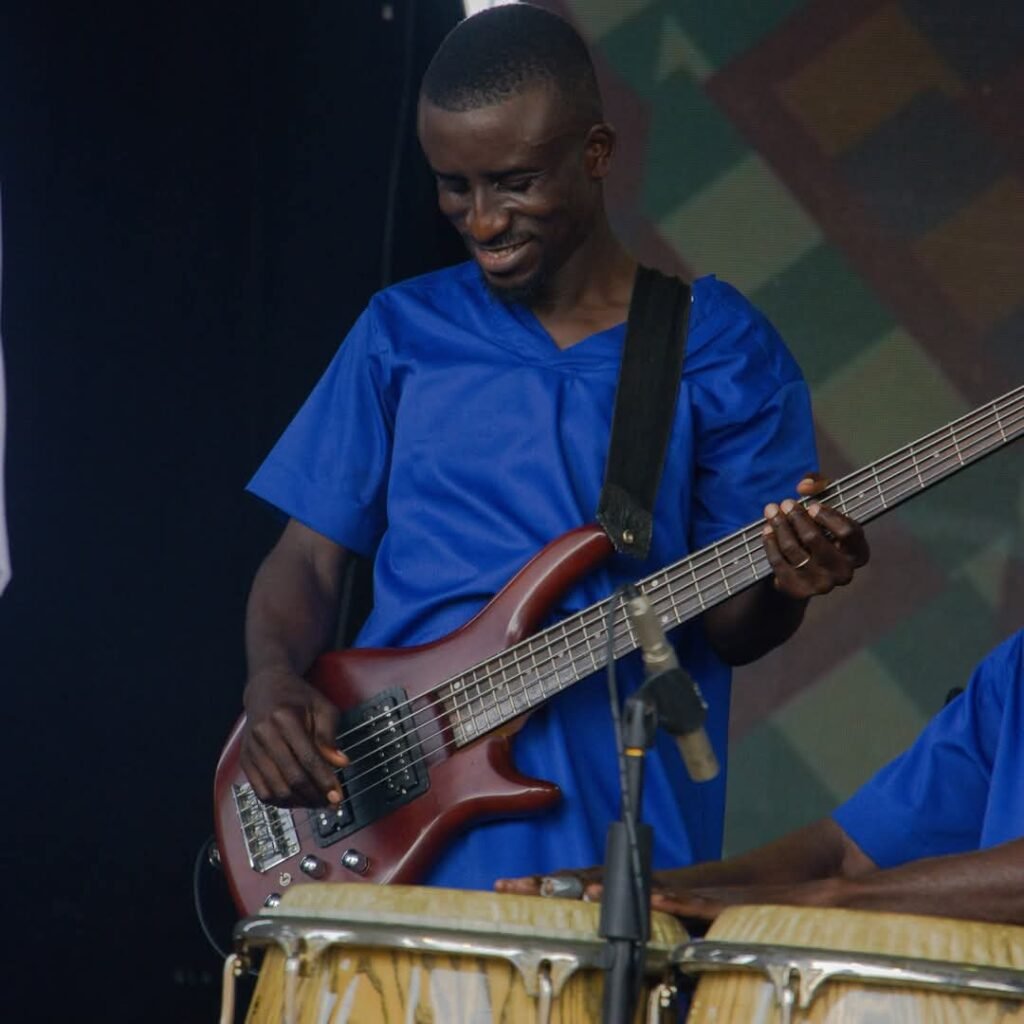
Ironically, music was not Daniel’s first dream. Like many young boys, he once hoped to become a professional footballer. But an injury from a school match left him unable to walk for three months, forcing him to retire that ambition. What seemed like a tragedy at the time became the turning point that aligned him with the path he was always meant to follow.
Daniel’s earliest musical expression began in church. As a boy in Sunday School, he eagerly ‘pounded’ the drums, quickly becoming known as the child who never missed an opportunity to play. Even in Senior High School (SHS), although many of his classmates were unaware of his talent, he continued practising quietly until completing school in 2005.
After SHS, Daniel joined a church music class with the intention of growing as a drummer, but one moment changed everything. Watching a bass guitarist perform stirred something in him. Drawn to the deep, steady tones of the bass, he persuaded a friend to teach him the basics. With no instrument of his own, Daniel practised at home using a broken guitar for more than eight months.
Then destiny intervened. The church’s lead bassist was suddenly suspended, and Daniel stepped in voluntarily during an evening service. That temporary voluntary act became permanent as he was asked by the then Music Director to fill in the gap. From that point, he embraced the bass guitar fully—a decision that defined the rest of his life.
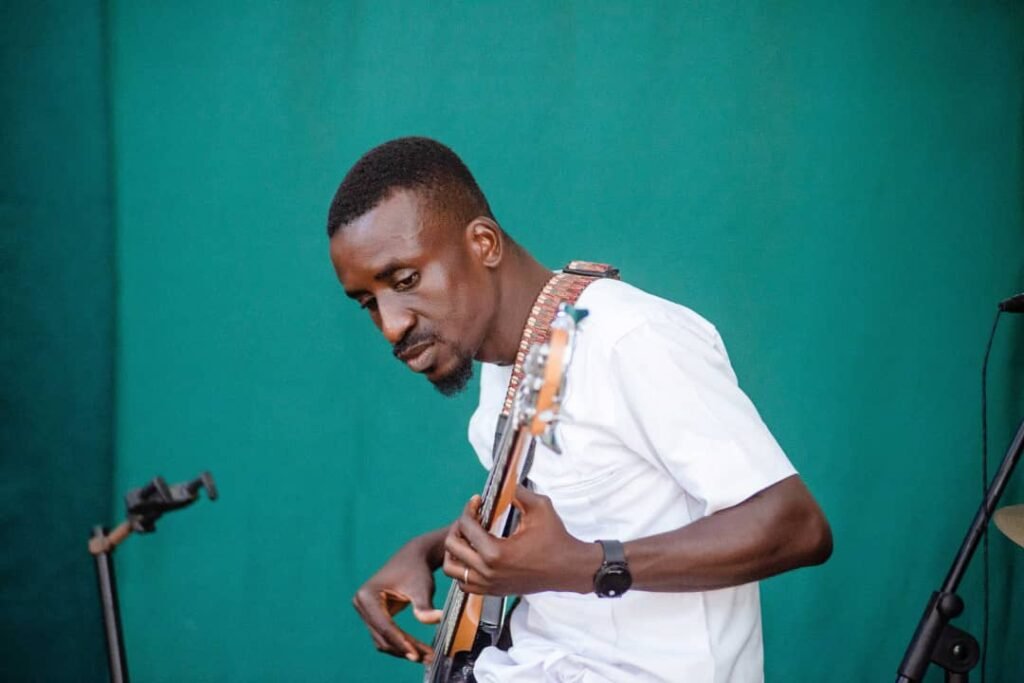
Around 2006, Daniel made a life-changing decision to take his craft seriously. He began practising for hours on end, sometimes up to eight hours a day, often without food, locked away from family and friends, perfecting techniques and expanding his creativity. While others assumed he was outdoors socialising, Daniel was indoors sharpening his gift.
His breakthrough came in 2007 when he performed in the TV3 Bands Alive competition. The exposure, applause, and feedback confirmed his dream: “music was not just a passion; it was his calling,” he said.
With time, Daniel moved confidently into the professional space. He performed at studio sessions, live concerts, weddings, church events, and high-profile national programmes. His talent, discipline, and reliability earned him a reputation that continues to attract respected gospel artistes.
Today, he works closely with Daughters of Glorious Jesus, Chris Apau, and Israel Ofori, who have been of immense help to his career ministry. He also collaborates with several ministries and offers support with musical arrangements, live performances, and studio recordings.
Beyond the stage, Daniel sees himself as a mentor. Many young musicians reach out to him, some visiting in person, others calling for guidance. Whether through hands-on training or virtual coaching, he is always ready to teach. For Daniel, music is not just technique; it is character, discipline, and values. He believes a musician must carry integrity both on and off stage.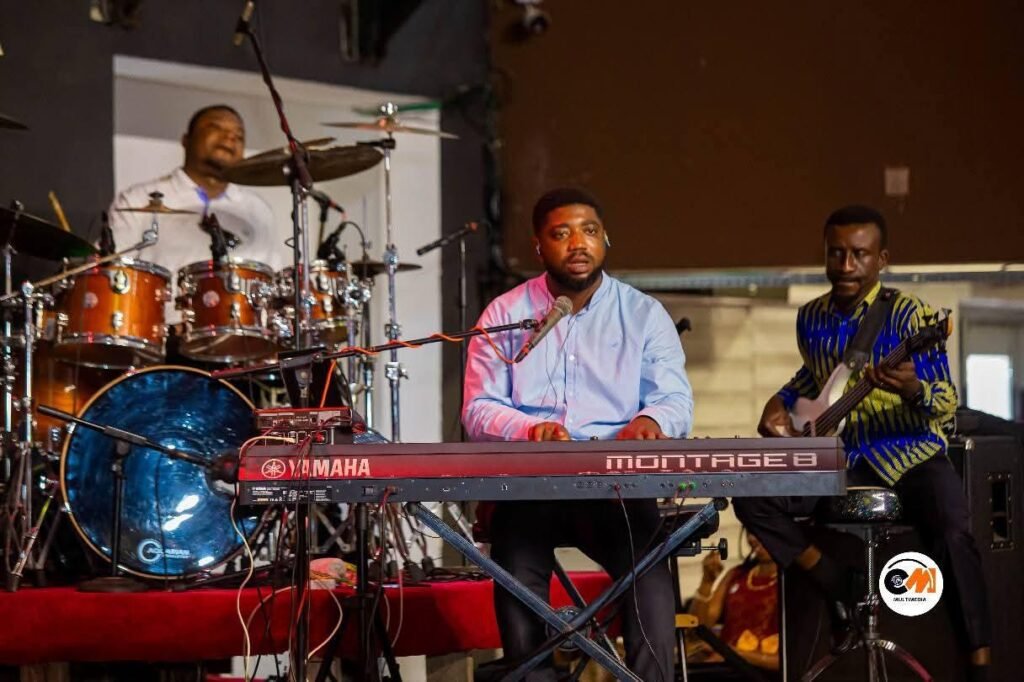
Like many musicians in Ghana, Daniel has faced challenges with delayed payments and broken agreements. These experiences have taught him to value professionalism. He now insists on part payment upfront and charges more for his services, a decision grounded in self-respect and fairness.
Daniel’s journey in music has been shaped by various individuals who have supported him at different stages of his career. He acknowledged Opoku Agyeman Sanaa, Kofi Ennin, Andrew Klu, Mr. Samuel Abbey, Mr. Samuel Sarpong Agyei, Paul Quartey, Mr. Nene Emmanuel, and Mr. Isaac Asiedu, saying that their belief in him continues to inspire his journey.
Daniel’s work is guided by his Christian faith. He sees music as ministry, not merely entertainment. Off stage, he is a devoted family man—a husband and father of two, a boy and a girl, who have also started playing musical instruments. During his leisure time, he listens to music, or plays football and action video games.
Through his acts of service and unwavering determination, Daniel continues to inspire others, proving that when passion meets integrity, ordinary men impact the lives of others.
By Esinam Jemima Kuatsinu







